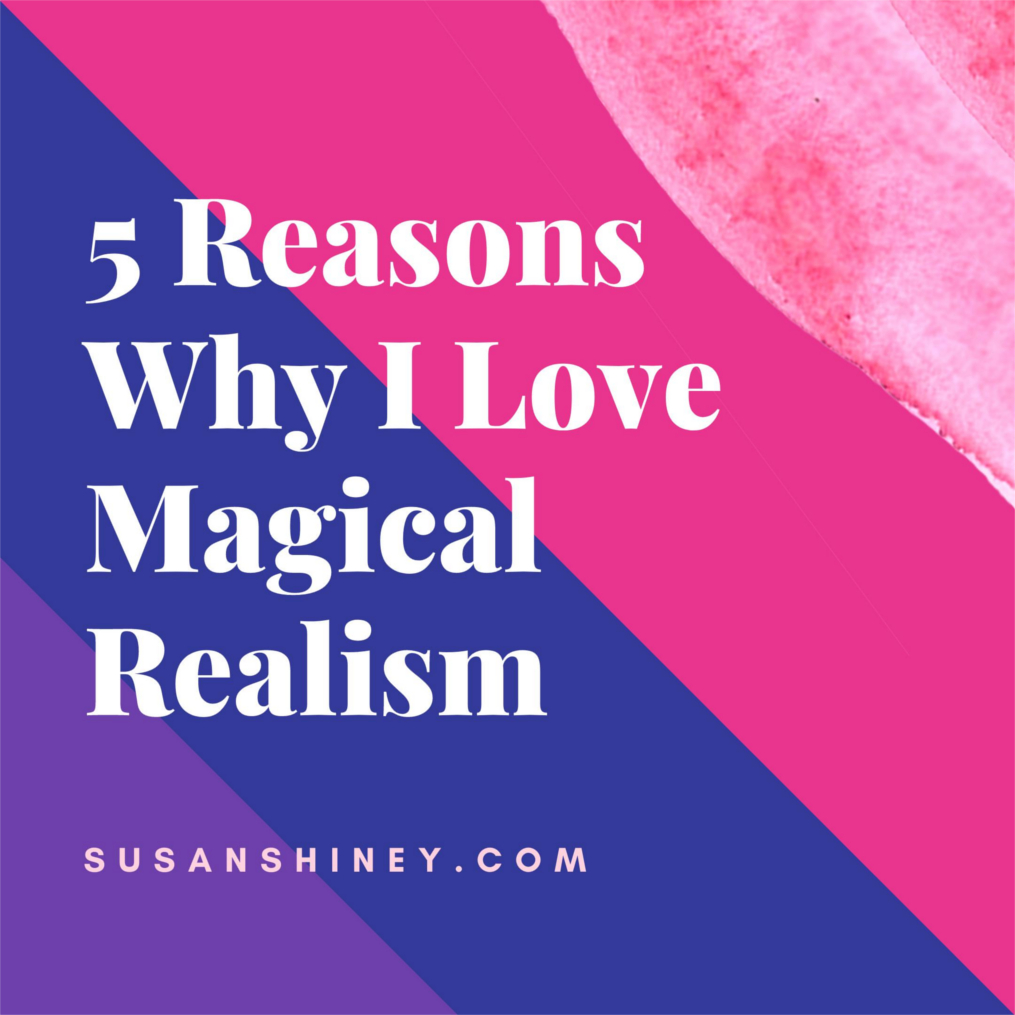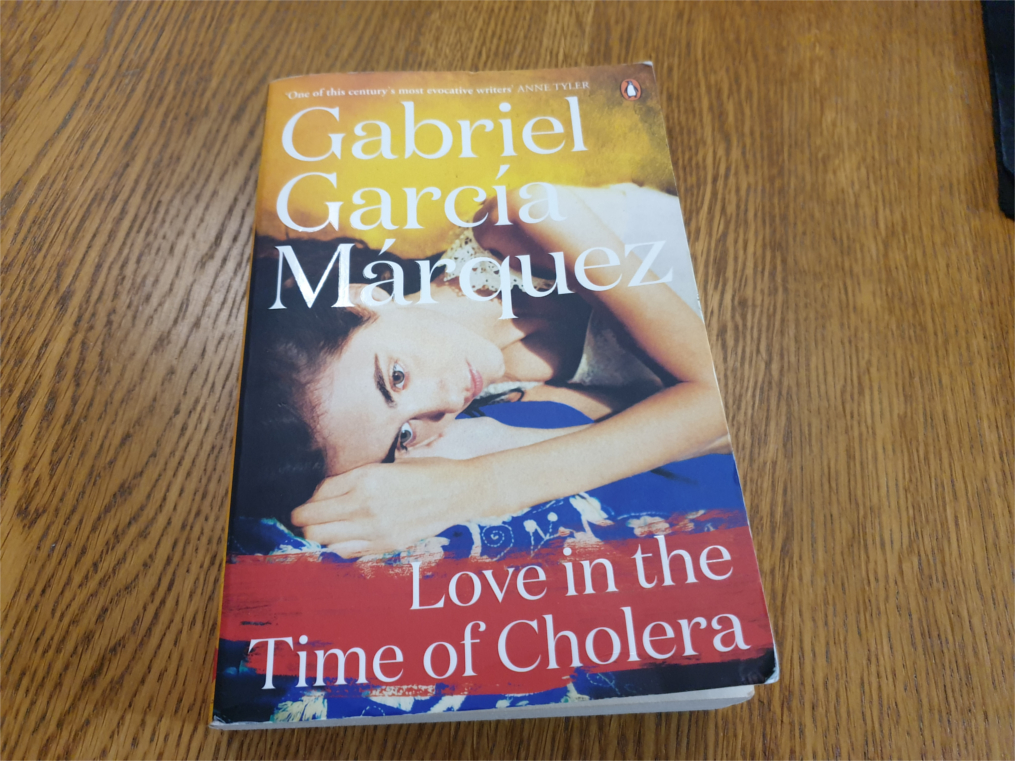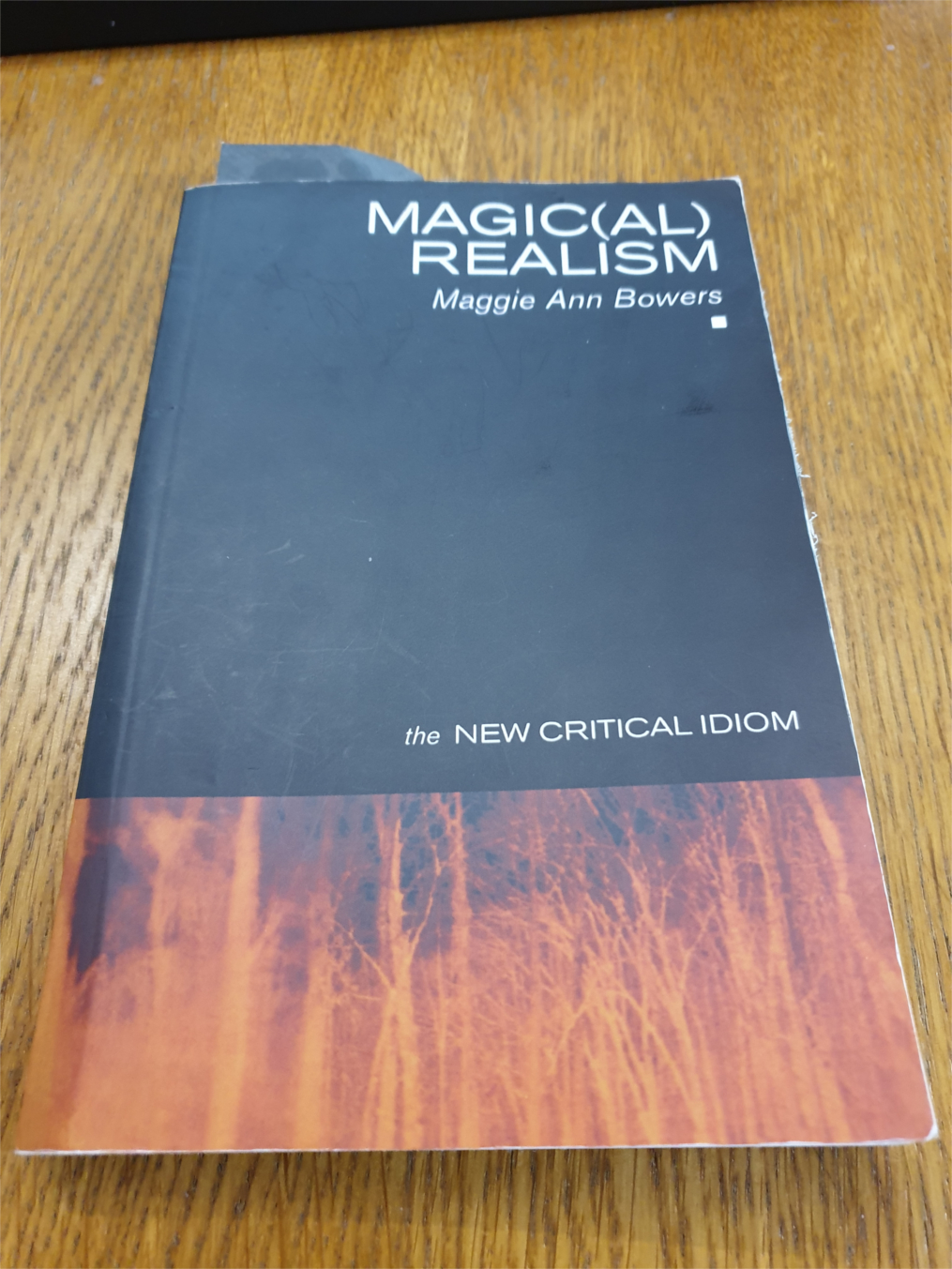
What is Magical Realism?
Maggie Ann Bowers in her book Magic(al) Realism, pg.3 defines it as something that ¨relies most of all upon the matter-of-fact, realist tone of its narrative when presenting magical happenings." Famous authors of magical realism include: Gabriel Garcia Marquez, Salmon Rushdie, Isabel Allende, Toni Morrison, and Arundhati Roy.
So, why do I love it? I use Maggie Ann Bowers book Magic(cal) Realism, a deep-dive into the narrative mode, and Gabriel Garcia Marquez´s Love in the Time of Cholera, a famous magical realist book, to help me explain myself.
1.Set in the real world or closely based on real cities.
This is an aspect that overlaps with my love of urban fantasy, another sub-genre under the fantasy umbrella. I love the sense of reality when the setting is something we live in in our everyday lives. Maybe it relates to my imagination getting away from me no matter where I am.
Here is an example of the setting established in Love in the Time of Cholera pg. 17-18, "In the eighteenth century, the commerce of the city had been the most prosperous in the Caribbean, owing in the main to the thankless privilege of its being the largest African slave market in the Americas. It was also the permanent residence of the Viceroys of the New Kingdom of Granada, who preferred to govern here on the shores of the world's ocean rather than in the distant freezing capital under a centuries-old drizzle that disturbed their sense of reality."
This description gives a sense of validity to what the author is describing, a truth, which makes the magical elements all the more powerful, as if they are just as true.
2. Focused on everyday events and conflict.
I prefer stories that focus on the human condition and relate to everyday real-life issues as oppose to battling fantastical elements. I want the magic on the periphery of the main conflict of the story. Love in the Time of Cholera is ultimately a love story following the main characters all the way through their lives, the magic is not the main focus, but a sprinkling of light throughout.

3. The magic is not a surprise to the world of the novel, everyone accepts it.
It is nice when the author doesn't spend a lot of time introducing the magical functions in the world. No characters are trying to figure out what is happening and needing the situations explained to them as a device to clarify it to the reader. It is another way this narrative mode plays down the magical, the elements are real to everyone and it is no big deal.
Maggie Ann Bowers in Magic(cal) Realism on pg. 4 describes this as, "One of the unique features of magical realism is its reliance upon the reader to follow the example of the narrator in accepting both realistic and magical perspectives of reality on the same level. It relies upon the full acceptance of the veracity of the fiction during the reading experience, no matter how different this perspective may be to the reader's non-reading opinions and judgments."
It requires the reader to take that leap. A great showing versus telling bringing the fantastical to a high literary level.
4.The magic adds a richness and is surprising.
Gabriel Garcia Marquez illustrates this richness in Love in the Time of Cholera on pg. 20, "Every afternoon after his siesta, Dr. Urbino sat with him on the terrace in the patio, the coolest spot in the house, and he had summoned the most diligent reserves of his passion for pedagogy until the parrot learned to speak French like an academician."
Wait, what? The parrot speaks fluent French? Moments like this add so much and make you slow down and savor what is happening. Yes, parrots can speak words here and there of course, but the idea of it speaking a foreign language fluently, just makes a smile crack on your face, right?

5.The omniscient narrator is done with skill adding another layer of imagination and creativity to the story telling.
Most writing craft books advise beginning writers to be wary of the omniscient point of view or narrator because it is very difficult to do. Head hopping is a common issue for writers jumping into the thinking of several characters at once in their stories. It needs to be done consistently with omniscient POV and requires the skill of a master to not make it feel strange.
Omniscient narrators are the god-like voice told in the third-person close that can shift inside the minds of all characters in the story at any time. This voice knows the whole history of each person and will refer to different aspects of their whole life in any given scene.
Here is an example of this in Love in the Time of Cholera pg. 27, "She heard him, knowing full well that not one of those noises was indispensable, and that he made them on purpose although he pretended not to, just as she was awake and pretended not to be. His motives were clear: he never needed her awake and lucid as much as he did during those fumbling moments."
We, as readers, are inside the minds of both characters and almost all characters we meet throughout the novel. Normally, first person or third person close will bring you into the mind of one character and see the world from their viewpoint, or they may change viewpoints chapter to chapter, but their is a consistency in one character at a time being the point of reference. Gabriel Garcia Marquez jumps back and forth between these husband and wife characters, sentence to sentence in the same paragraph with such ease. Wow. The effect is powerful because of the way he communicates love, especially after some fifty-odd years as a couple. We live in the minds of and identify with both characters strongly.
Implications for my own writing:
In an effort to answer the dreaded question: What genre do you write in?
I have to dig deep and study them. I like literary critique and analysis so buying books that analyze them is fun for me and adds an added dimension to my work. I keep adding to my TBR (to be read) list and want to keep figuring out what aspects I will use in my own novel. The classifying of stories through genres or narrative modes to fit the needs of marketing or readers' expectations can seem daunting. I am working on being as educated as possible and reading widely to try and help me answer these questions.
What about you? How do you research the genre you are writing? Is it difficult to put a label on what you do?